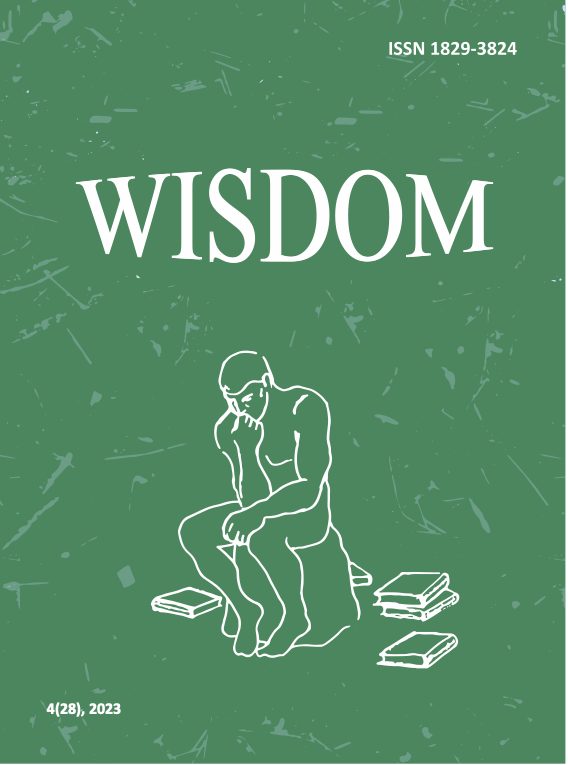Repair: a Dislocating Concept and its Vicissitudes
DOI:
https://doi.org/10.24234/wisdom.v9i2.184Keywords:
repair, technology, compensation, maintenance, consumption, capitalismAbstract
The concept of repair – and its very interesting synonyms (but, as we know, the synonyms are never perfectly superposing) – emphasises both its socially constructed meanings and its extra-theoretical relations or practical functions. My paper has two methodological goals. The first corresponds to the focus on the historical and social roots of the place of repair activities in different human societies, while the second consists in the insistence on the causes and consequences of the repudiation of repair in the present era of world capitalism.
Passing over the etymological sources of the specific action of repair, we cannot neglect its interdependence with both the labour processes and the scarcity that characterised ab initio the human societies. The paper explains how rarity and social domination relations are ontological factors directly determining the activities of repair, and also how the indirect ontological factors of tool-making ability and the level of the means of production (or, more generally, of productive forces) and the structural relations intertwine and fuel these activities. The entire logic of epistemological origins but also of the historical attitudes towards repair reflects the role of the social domination, concretely, of the capitalist relations imposing only a fragmented, anti-ecological perspective on nature-society.
Downloads
References
Bazac, A. (2007). În jurul problemei cauzelor structurante: ontologia gramscian? a for?elor de pro-duc?ie ?i teoria rarit??ii la Sartre. În Gramsci ?i Sartre. Mari gânditori ai secolului XX (pp. 97-113). Bucure?ti: Editura Institutului de ?tiin?e politice ?i rela?ii interna?ionale.
Bazac, A. (2008) Sartre ?i aventura conceptului de raritate. În A. Neac?u (Ed.), Sartre în gândirea contemporan? (pp. 105-162). Craiova: Editura Universitaria.
Bazac, A. (2012). Significances of an ‘Alternative’ Health Care: the Health Column in a Romanian Post-Communist Popular Magazine. Debatte: Journal of Contemporary Central and Eastern Europe, 20(2-3), 151-169.
Bazac, A. (2017). Three Concepts in the History of the Knowledge of the World (Cause, Consequence, Telos) and a Conclusion. Biocosmology – Neo-Aristotelism, 7(2), 155-177.
Catton, W. (2008). A Retrospective View of My Development as an Environmental Sociologist. Organization Environment, 21(4), 471-477.
Catton, W. R. Jr. (1976, April). Can Irrupting Man Remain Human? BioScience, 26, 262-267.
Catton, W. R. Jr. The World's Most Polymorphic Species: Carrying capacity transgressed two ways. Retrieved November 2, 2017, from http://www. jayhanson.org/page81.htm.
Chew, S. C. (2001). World Ecological Degradation: Accumulation, Urbanization, and Deforestation, 3000BC-AD2000. Walnut Creek, California: AltaMira Press.
Custers, R. (2017, September 18). L’Allemagne se sert en Mongolie. Retrieved November 5, 2017, from: http://www. investigaction.net/fr/lallemagne-se-sert-en-mongolie/.
de Sousa Santos, B. (2011, janvier-juin). Épistémologies du Sud. Études rurales, 187, 21-50.
Dhillon, B. S. (2006). Maintainability, Maintenance, and Reliability for Engineers. Boca Raton (Fl.): CRC Press Inc.
Dufour, D.-R. (2009). Le Divin Marché. Paris: Denoël.
Gorz, A. (1962, September-October). Avant-propos. Les Temps Modernes, 196-197, 386-400.
Graham, S., & Thrift, N. (2007). Out of Order: Understanding Repair and Maintenance. Theory, Culture & Society, 24(3), 1-25.
Harkin, M. E., & Lewis D. R. (Eds.) (2007). Native Americans and the Environment: Perspectives on the Ecological Indian. University of Nebraska Press.
Herman, P. (2017, Septembre). Pratiques criminelles dans l’agroalimentaire. Le Monde Diplomatique. Retrieved November 5, 2017, from: http:// themaintainers.org/.
Klein, N. (2013, October 29). How Science is Telling Us All to Revolt. Retrieved November 5, 2017, from: http:// www.newstatesman.com/2013/10/science-says-revolt.
Klein, N. (2015). This Changes Everything: Capitalism vs. the Climate. New York: Simon and Schuster.
Krech III, Sh. (2000). The Ecological Indian: Myth and History. New York, London: W. W. Norton & Company.
Littler, J. (2008). Radical Consumption: Shopping for Change in Contemporary Culture. Berkshire: Open University Press.
Motesharrei, S., Rivas, J., & Kalnay, E. (2014). Human and Nature Dynamics (HANDY): Modeling Inequality and use of Resources in the Collapse or Sustainability of Societies. Ecological Economics.
Opris, I. (2013, November 19). Interlaminar Microcircuits Across Neocortex: Repair and Augmen-tation. Frontiers in Systems Neuroscience. doi: 10.3389/fnsys.2013.00080.
Polimeni, J. M., Mayumi K., Gianpietro, M., & Alcott, B. (2008). The Jevons Paradox and the Myth of Resource Efficiency Improvements. London, Sterling, VA: Earthcan.
Sartre, J.-P. (1960). Critique de la raison dialectique (précédé de Questions de méthode), Tome I, Théorie des ensembles pratiques. Paris: Gallimard.
Spelman, E. V. (2002). Repair: The impulse to restore in a fragile world. Boston: Beacon Press.
Toffler, A. (1970). Future Shock. Random House.
World Hunger Again on the Rise, Driven by Conflict and Climate Change, New UN Report Says. (2017, September). Retrieved November 5, 2017, from: http://www.fao.org/news/story/en/item/1037253/icode/.
Downloads
Published
How to Cite
Issue
Section
License
Creative Commons Attribution-Non-Commercial (CC BY-NC). CC BY-NC allows users to copy and distribute the article, provided this is not done for commercial purposes. The users may adapt – remix, transform, and build upon the material giving appropriate credit, and providing a link to the license. The full details of the license are available at https://creativecommons.org/licenses/by-nc/4.0/.















